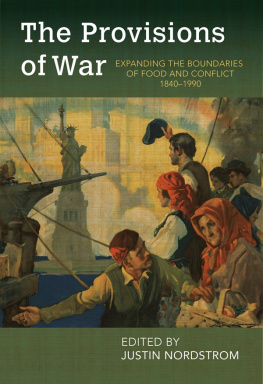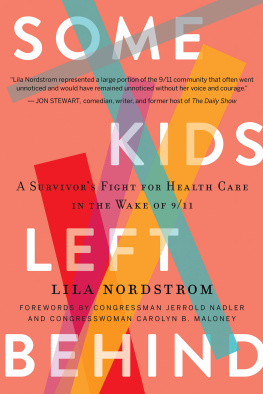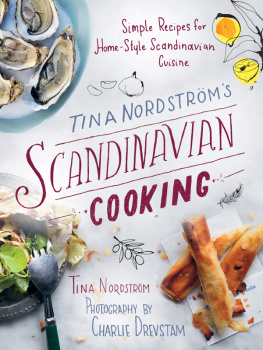OTHER TITLES IN THIS SERIES
Rooted Resistance: Agrarian Myth in Modern America
A Rich and Tantalizing Brew: A History of How Coffee Connected the World
To Feast on Us as Their Prey: Cannibalism and the Early Modern Atlantic
Forging Communities: Food and Representation in Medieval and Early Modern Southwestern Europe
Inventing Authenticity: How Cookbook Writers Redefine Southern Identity
Chop Suey and Sushi from Sea to Shining Sea: Chinese and Japanese Restaurants in the United States
Aunt Sammys Radio Recipes: The Original 1927 Cookbook and Housekeepers Chat
Mexican-Origin Foods, Foodways, and Social Movements: Decolonial Perspectives
Meanings of Maple: An Ethnography of Sugaring
The Taste of Art: Food, Cooking, and Counterculture in Contemporary Practices
Devouring Cultures: Perspectives on Food, Power, and Identity from the Zombie Apocalypse to Downton Abbey
Latin@s Presence in the Food Industry: Changing How We Think about Food
Dethroning the Deceitful Pork Chop: Rethinking African American Foodways from Slavery to Obama
American Appetites: A Documentary Reader
Copyright 2021 by The University of Arkansas Press. All rights reserved. No part of this book should be used or reproduced in any manner without prior permission in writing from the University of Arkansas Press or as expressly permitted by law.
ISBN: 978-1-68226-196-5 (cloth)
ISBN: 978-1-68226-175-0 (paper)
eISBN: 978-1-61075-750-8
25 24 23 22 21 5 4 3 2 1
Manufactured in the United States of America

The paper used in this publication meets the minimum requirements of the American National Standard for Permanence of Paper for Printed Library Materials Z39.48-1984.
Cataloging-in-Publication Data on file at the Library of Congress
SERIES EDITORS PREFACE
The University of Arkansas Press series Food and Foodways explores historical and contemporary issues in global food studies. We are committed to representing a diverse set of voices that tell lesser-known food stories and to opening up new avenues for interdisciplinary research. Our strengths are works in the humanities and social sciences that use food as a critical lens to examine broader cultural, environmental, and ethical issues.
Feeding ourselves has long entangled human beings within complicated moral puzzles of social injustice and environmental destruction. When we eat, we consume not only food on the plate but also the lives and labors of innumerable plants, animals, and people. This process distributes its costs unevenly across race, class, gender, and other social categories. The quotidian processes of food production and distribution can obscure the significance of these material and cultural connections, impeding honest assessments of our impact on the world around us. By taking these relationships seriously, Food and Foodways provides a new series of critical studies that analyze the cultural and environmental relationships that have sustained human societies.
The Provisions of War gathers the work of sixteen scholars who consider how food not only shapes the outcome of war but also provides meaning in moments of human conflict that prompt us to reassess the conventional geographical and historical boundaries of modern warfare. The collection approaches the home front and the battlefield as interconnected spaces where the domestic work of preparing and eating food extends to the front lines, and where the violence and mass death of the warzone encompasses the fields, barns, and kitchen tables back home. And by scaling the tempo of war to the pace of agricultural, logistical, and culinary cycles, the collections authors also reveal how the rhythms of modern conflict have corresponded to broader shifts in the social relationships between food and human identity over the last two centuries.
Spanning the globe, this volume is also unique in its emphasis on studying the roles played by food, agricultural, and nutrition in the myriad conflicts of empire and decolonization that both preceded and followed the two great world wars of the twentieth century. What emerges from this careful attention is a greater appreciation of how food has served as an analytical category for ranking, organizing, and understanding the stakes, experiences, and impacts of conflicts around the world. The Provisions of War documents how food not only wins the waras modern students of total warfare have long proclaimedbut also how food serves as an organizing principle for making sense of the chaos and violence that wracks the world in moments of crisis. The contributors to this book, as well as its editor, Justin Nordstrom, approach these challenging topics with a sensitivity and thoughtfulness that urges reflection and encourages us to think about both food and conflict as inseparable aspects of human existence that demand serious contemplation.
JENNIFER JENSEN WALLACH AND MICHAEL WISE
ACKNOWLEDGMENTS
This book would not be possible without the team of insightful and creative contributors whose chapters appear in the following pages. I have been extremely fortunate to dialogue with, and learn from, the contributors to The Provisions of War, who hail from around the world, but who share an interest in global food studies. Thanks to all of you for sharing your work to create this book.
I am grateful for the support of my colleagues at Penn State Hazleton for their encouragement and advice, particularly Lisa Hartz, Erik Angel, Val Lynne, Shannon Riche, and Maggie Froehlich. A special thanks to Liz Wright, for her mentorship and support. I have also benefited from conversations with other scholars in American food history as I edited this anthologyparticular thanks goes to Amy Bentley, Katherine Magruder, Kellen Backer, and Andrew Case. At the University of Arkansas Press, I was fortunate to work with an exceptional team, including David Scott Cunningham, Jenny Vos, Janet Foxman, Liz Lester, and Molly Bess Rector, and the series editors of the Food and Foodways Series, Michael Wise and Jennifer Wallach. Thanks also to Steve Ingle and Bill Morrison of WordCo Indexing Services for their work preparing the books index.
I want to say a special thank you to my parents, Harold and Mary Jo Nordstrom, for inspiring my love of food and history, and to my son, Levi, who is the funniest and most sincere person I have ever met. Most importantly, I want to once again thank Alicia, my wonderful and amazing wife, for showing me perseverance, love, humor, and kindness for so many years. And thanks for never complaining about my cooking.
INTRODUCTION
Geography and Chronology in Food and Warfare
JUSTIN NORDSTROM
This anthology brings together historians employing a diverse range of methodologies and international perspectives to study the relationships between food, warfare, and postwar debates during the past hundred and fifty years. While intentionally broad in scope, the books unifying theme is how soldiers, civilians, and communities have attempted to use food (and its absence, deprivation and hunger) as both a weapon of war and a unifying force in establishing governmental control and cultural cohesion during times of conflict.
Although they are tremendously varied, the essays in The Provisions of War fall into two broad categories. Chapters in examine familiar conflicts such as World War II or the U.S. Civil War from international perspectives, emphasizing the study of foodways as a means of comparative history.

 The paper used in this publication meets the minimum requirements of the American National Standard for Permanence of Paper for Printed Library Materials Z39.48-1984.
The paper used in this publication meets the minimum requirements of the American National Standard for Permanence of Paper for Printed Library Materials Z39.48-1984.








